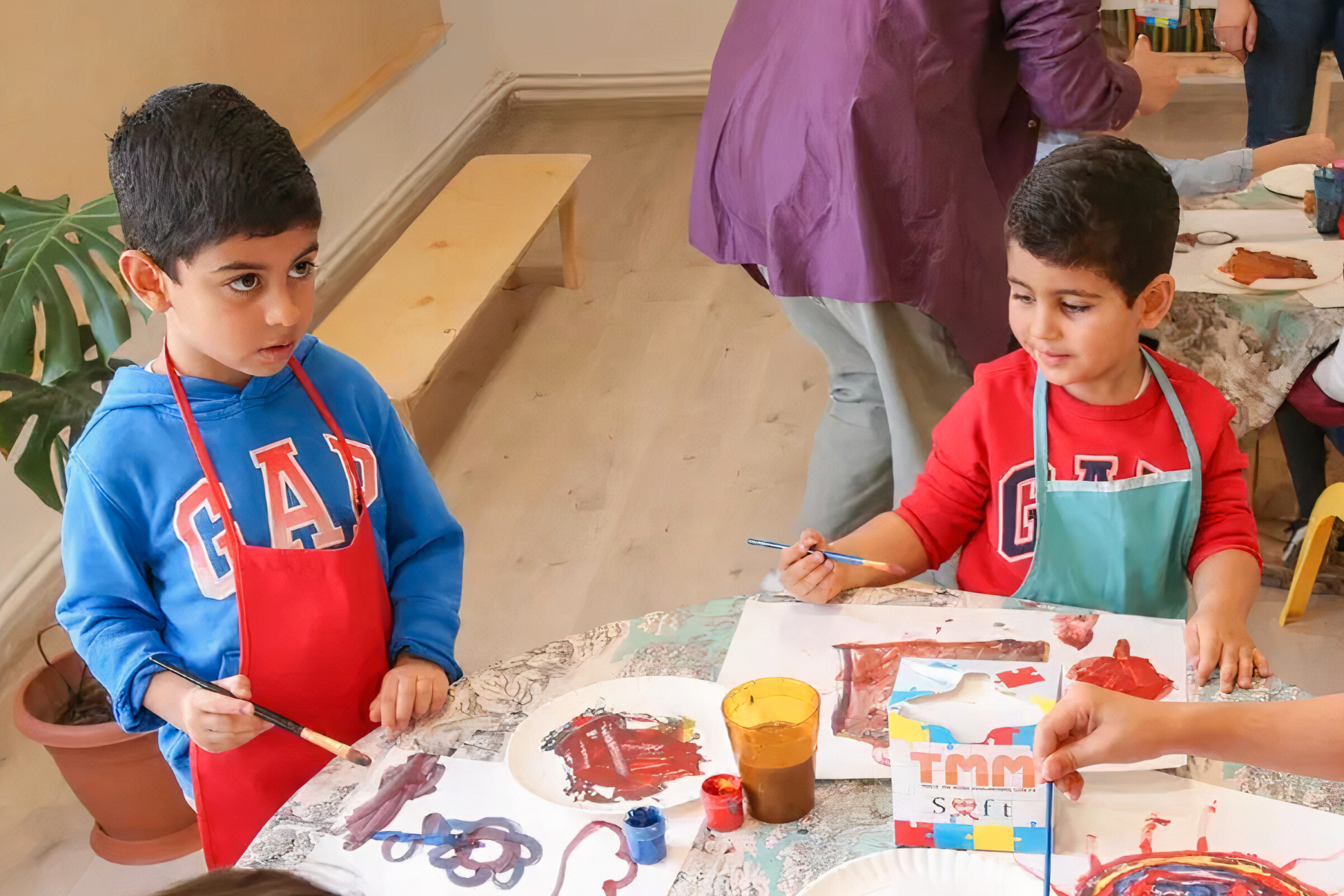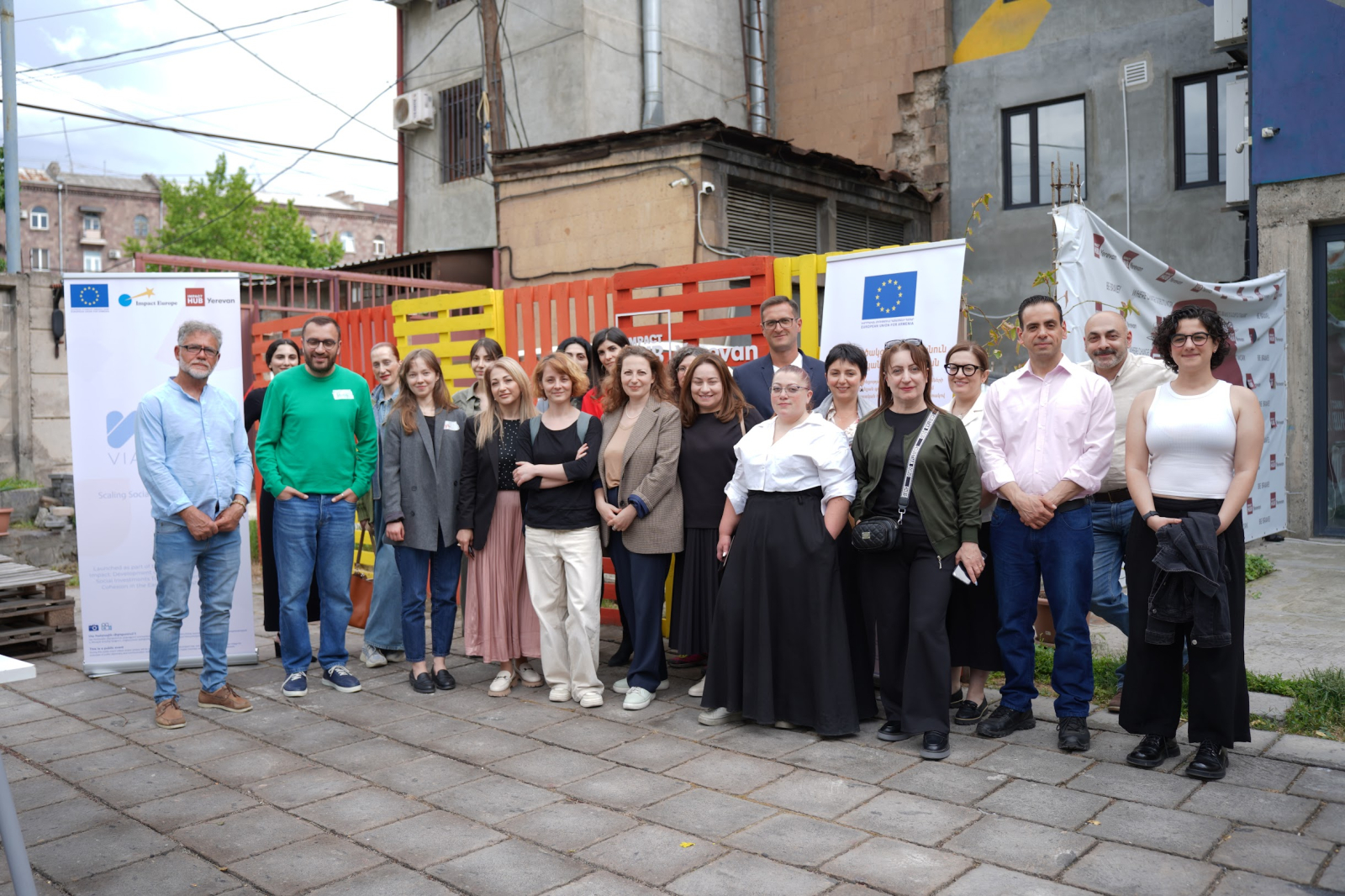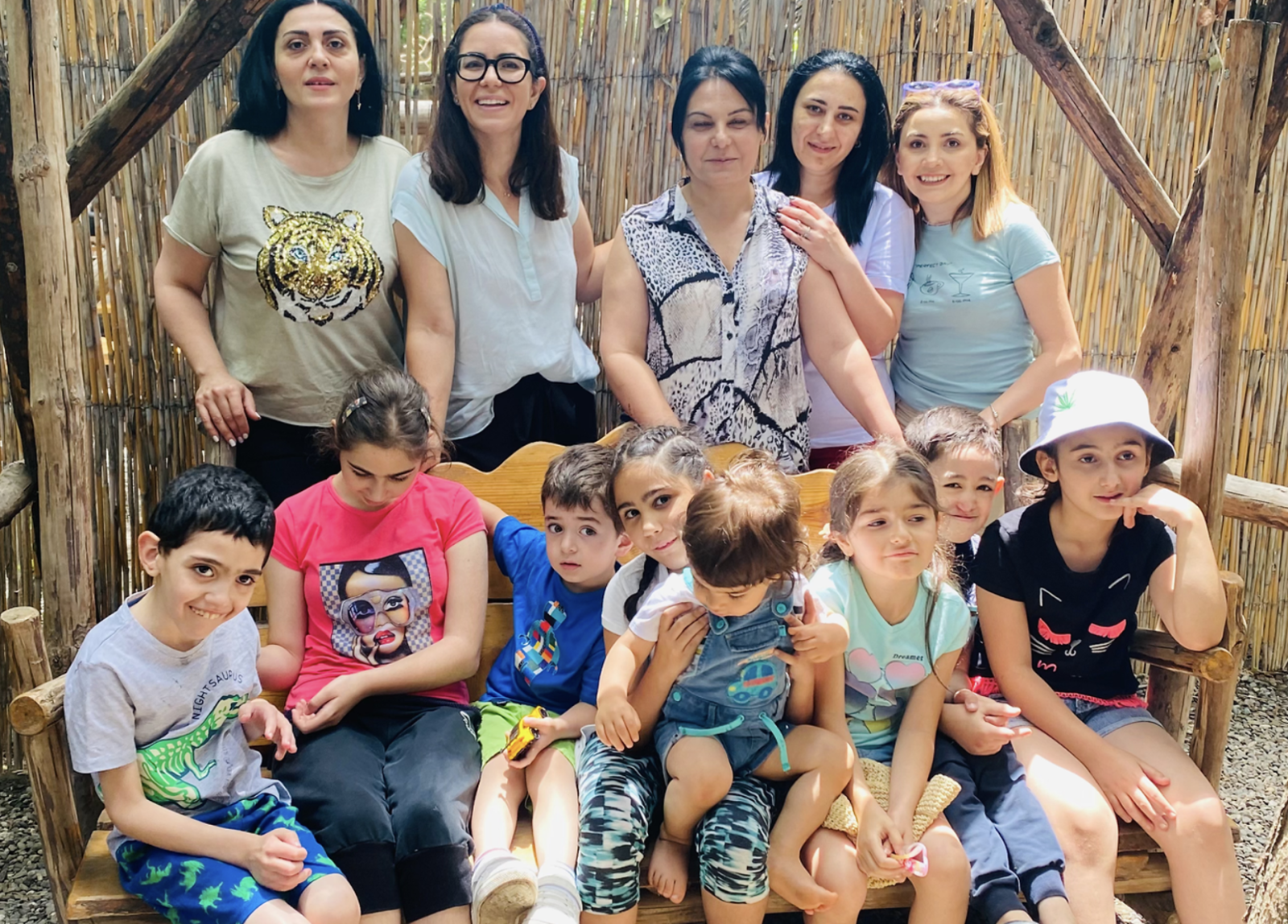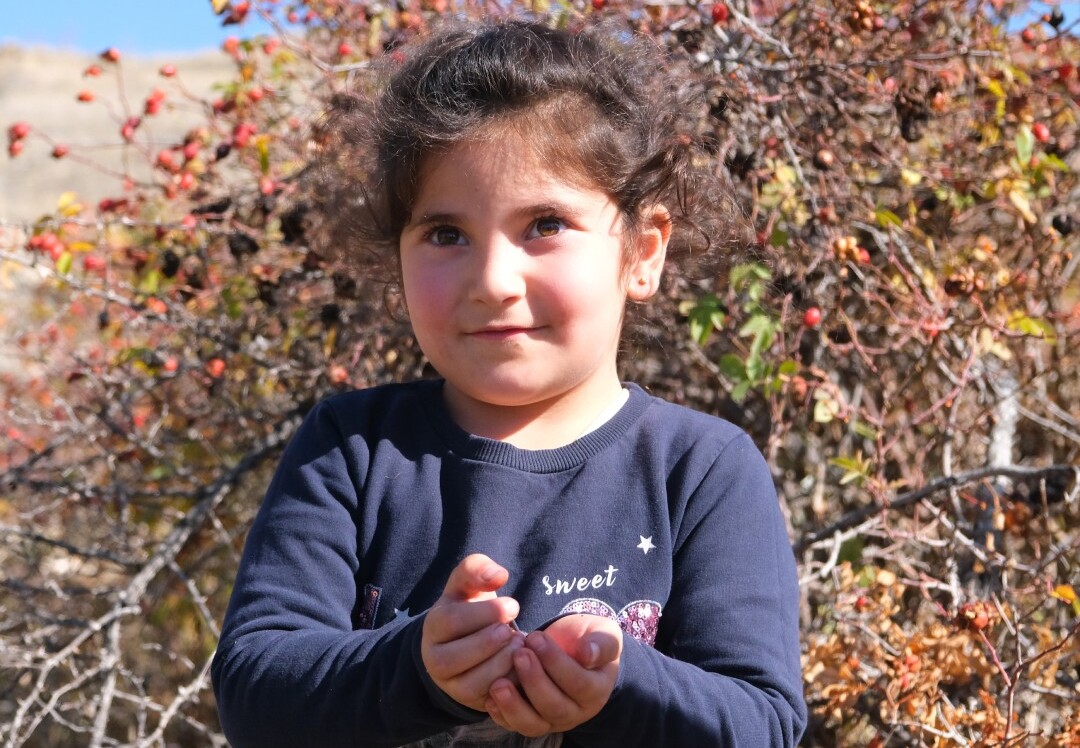Ready to Have (More) Impact
You can’t pick up a football and expect to instantly become Lionel Messi, nor can you pick up a microphone and immediately roll out the hits like Madonna. These things takes exercise and preparation. Businesses, too, cannot thrive without going through the motions first. Luckily, in Armenia, Impact Hub Yerevan is helping social enterprises hit the ground running with a new program geared towards investment readiness.

For a business to prosper and grow, it needs both starting capital and investments. This last category is not always easy to come by, especially if your enterprise is mainly focused on generating a positive impact rather than maximizing profit at all costs. One of the remarks coming from potential investors in impactful enterprises is that a lot of the SME’s presented to them are not investable.
This, of course, does not mean that they are inherently incapable of processing investments. It does indicate, however, that more can to be done to both
- underscore the impact being generated and ...
- alleviate the perceived risk for the investor
The elaborate and learning-centered VIA Fund Investment Program aims to help businesses do both. The VIA Fund, as you may remember, is the impact fund set up by Impact Hub Yerevan within the framework of the EU-supported Collaborate For Impact program, ran by Impact Europe. The fund recently selected 10 new social enterprises to support in becoming (more) investable. By combining capacity-building with the opportunity for funding, the program helps social enterprises lay the groundwork for future expansion.
The crucial first step in this process is educational. Over the course of three months, the chosen SME’s participate in an intensive program aimed at helping secure future investments. This deep-dive course is roughly divided in three main modules: Impact Strategy and Modeling, Scaling Readiness, and Financial Modeling. The reasoning is simple – a sound business plan and diligent measuring of impact will inspire confidence in potential investors that their money is well spent. Throughout the learning period, the social enterprises have access to dedicated coaches and personalized mentorship. Next to learning business fundamentals, they also receive guidance on how to pitch their business to possible investors.

It's a crucial skill, that gets put to the test at the very of the learning course. A final pitching event wraps up the VIA Fund offering, and gives participants a first opportunity to claim the funding they need to scale and grow their enterprises. Together with co-investor C-QUADRAT Ampega Armenia Social Fund, the VIA Fund can provide the best investment cases with a maximum grant of 13,000,000 AMD and maximum 12,000,000 AMD soft loan (5% of annual interest) based on their case and investment needs. There is no guarantee, though. The VIA Fund investment committee makes a decision, based on the pitch quality and the business case developed over the course of the program.
A diverse selection
As indicated, the current program includes 10 social enterprises that, in their own way, are hard at work to improve the quality of life for their community. We believe it is worthwhile to showcase them here, in the early steps of growing their business, to show the diversity of their operations.
Multiple of the participating social enterprises focus on providing employment opportunities for vulnerable groups in society, often while looking to also realise supplementary impact goals.
Take Apricot, for example. Situated in the Lori region, this social enterprise is engaged in the production of herbal teas, berry teas and different types of handicrafted souvenirs. Apricot specifically looks to employ people with disabilities. The potential for impact is high. Of the 19.500 disabled people in the region, only 0,8% were employed as of 2023. By offering both employment and learning opportunities, Apricot effectively reintroduces disabled people into society, offering them financial stability and a sense of connection.

This attention to inclusivity is visible with other entrepreneurs, too. Ardook provides washing and ironing services, while also offering an extra income to women who would otherwise struggle to find employment. A large part of the team of Ardook, for example, consists of mothers with disabled children. This group often struggles to balance their duties at home with a professional career. The business model of Ardook allows for them to work from home, allowing them to continue supporting their children while reclaiming financial stability and independence.
Mothers can also benefit from the offering of the Magicland Educational Center in Talin. This social enterpise provides qualitative education for preschool children. In addition to this, they run a three-month program to help women from disadvantaged families develop their professional skills, preparing them for relevant jobs. By combining education for both child and mother, they enable families to drastically improve their social condition and future prospects.
Producing what matters
Going beyond the purely social impact, a lot of attention is also extended to social enterprises with inclusive and eco-friendly production chains. In other words, it’s not only about who you hire, but also about what you do or make.
Sofi-Luxe is a good example. Founded in 2021 as a high-quality clothing company, they boast innovative and eco-friendly production techniques to motivate Armenians to buy their clothes locally. Production has also started on a clothing line that features fully adaptive clothing, specifically aimed at facilitating the life of people with special needs or motoric difficulties.
Meanwhile, in Khachik village, Mi Bour works on the introduction and development of organic agriculture. To do so, they initiated a local women's cooperative that produces organic agri-food, while receiving support and guidelines through Mi Bour. What’s even more, Mi Bour also works on positioning, marketing, and selling the produced goods. Over time, they hope to transform the Khachik into an Eco-Village - a true center of agritourism. By doing so, they aim to encourage local youth to go down the same path and to help modernize the community.

Impactful production, though, can also mean protecting and celebrating cultural heritage, including traditional techniques of artisans. CeramaZart aims to do exactly this for pottery and ceramics. More specifically, they aim to equip artists from Artsakh (i.e. the contested region of Nagorno-Karabakh) with work, professional skills, and new professions, providing them with a creative environment, work tools, equipment, and stable paid work. Through the traditions and culture of Armenian modern and traditional pottery, CeramaZart aims to present the culture of modern and traditional Armenian ceramics abroad.
The community factor
The final four participants in the VIA Fund Investment Program are quite different, but share one crucial element – community.
There is Arvestaran - a safe space for children and young adults with (and without!) autism and a variation of developmental disabilities. At its core, it is a community of people collaborating to foster a more inclusive and informed society. Several services and programs help contribute to this, including daycare programs, educational offerings, therapeutic support, workshops and space rentals. But Arvestaran also produces lotions and handicrafts to generate further revenue to reinvest in their community.
For those who prefer physical activity, there is CHAMPION Sports Development, an NGO aims to transform underused or abandoned areas near school properties into vibrant football and sports centers. Since its creation, Champion has been implementing its first project – the construction of an outdoor stadium on the territory of the AYB school. Moreover, a group of up to 30 children is receiving soccer training through the efforts of CHAMPION.
Alternatively, you could visit Armenian Camp. Flanking Lake Sevan, this social enterprise presents itself as not just a destination, but a transformative experience committed to inclusivity, environmental sustainability, and community impact. Armenian Camp provides accessible facilities and services for individuals with disabilities, ensuring everyone can participate in a wider range of activities like kayaking, SUP boarding, windsurfing, boccia, and cultural tours. Throughout, the camp implements eco-friendly practices such as waste management, renewable energy use, and environmental education.
And if throughout reading this, you started fealing eager to visit Armenia, you could consider the services of Armenia Way. This social tourism venture blends classic tourism with impactful social activities, fostering cross-cultural connections and community engagement. They want to showcase hidden gems while empowering local communities through skill exchanges, cultural interactions, and sustainable initiatives. It's a win-win for both tourist and guest country.
Impact Europe is pleased to welcome the new round of entrepreneurs to the VIA Fund Investment Program, and wishes them all the best of luck with the learning modules and the subsequent pitching sessions!
